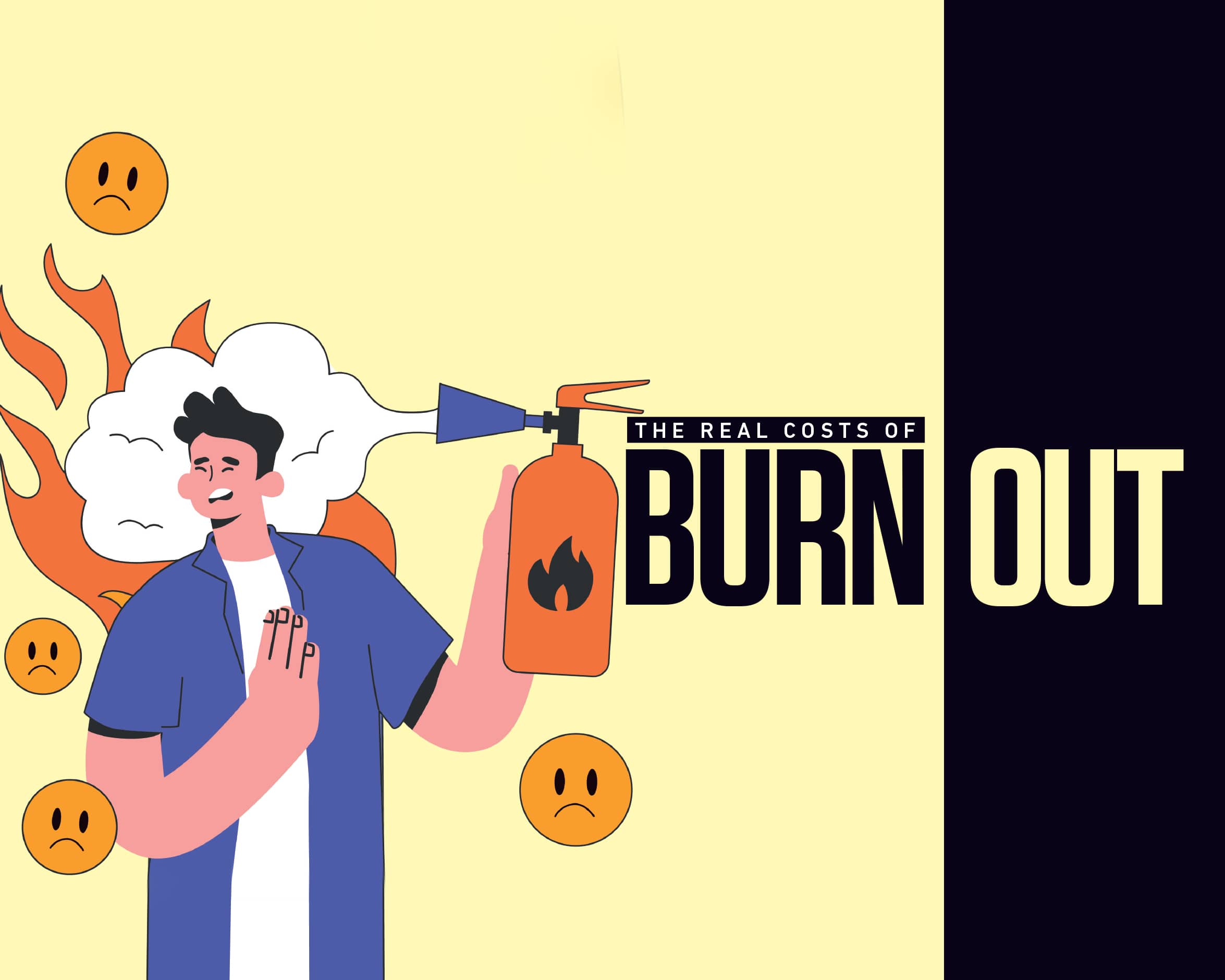Smell that? It could be you… Protect your health and career before it all goes up in flames.
Burnout costs the South African economy billions each year. Individuals pay a far higher price. To avoid becoming a statistic, you need to protect yourself before you wreck yourself.
Prof Renata Schoeman, head of Healthcare Leadership at Stellenbosch Business School, emphasises that burnout is primarily workplace-related; the World Health Organisation also classifies burnout as an occupational phenomenon.
According to a recent Gallup report, 36% of the South African workforce experiences excessive daily stress, and more than 71% are disengaged at work – clear indicators of burnout. Burnout, resulting from chronic workplace stress, is a persistent feeling of physical and emotional exhaustion that frequently comes with pessimism or cynicism and lack of interest in work.
“The culprits are usually an imbalance of resources and demands at work, conflicting values between personal and organisational beliefs, and a lack of support systems,” says Prof Schoeman.
The effect on the economy
Health economists estimate that unaddressed mental-health conditions cost the South African economy up to R161 billion per year due to lost workdays, presenteeism (being at work but feeling unwell) and premature mortality.
Prof Schoeman adds that burnout leads to increased absenteeism, reduced productivity, poor work performance and high employee turnover, which all negatively affect an organisation’s bottom line.
“The hidden, indirect cost for businesses include the loss of institutional knowledge when employees leave, the time and cost spent on training and upskilling new employees, and the negative impact on organisational culture,” she notes. “Once a company is known for its toxic work environment, it becomes challenging to attract top talent.”
It costs you your health
Burnout doesn’t happen overnight; it builds gradually over time, with subtle signs and symptoms. If left untreated, it can lead to severe physical and mental-health issues that require medical treatment.
Contributing to depression, anxiety and other stress-related psychological disorders, burnout significantly impacts one’s quality of life, relationships and overall well-being. Physically, prolonged burnout can lead to cardiovascular disease, diabetes, gastrointestinal issues and a weakened immune system.
Whether through self-care or organisational action (see above) , tackling burnout is essential. Recognise the signs, take proactive steps and let’s create healthier, more productive workplaces that don’t set off the fire alarms daily.
10 ways for companies to snuff out burnout
1. Reward Performance
High performers expect to work hard but they also need acknowledgement. Boost morale and motivation with tangible rewards – bonuses, promotions or extra leave days – along with public recognition.
2. Distribute Workload Evenly
Avoid overburdening top performers by ensuring work is distributed fairly among team members. Implement systems to monitor and manage workloads effectively.
3. Provide Support
Offer career development opportunities and access to mental-health resources, and encourage their use.
4. Work-Life Boundaries
Promote policies that support work-life balance, such as flexible working hours and remote or hybrid work options. Encourage employees to take breaks and use their annual leave.
5. Open Communication
Create an environment where employees feel comfortable discussing their workload and stress levels. Regular check-ins with all team members can help identify and address issues before they escalate.
6. Rotate Assignments
Provide high performers with new challenges and learning opportunities by rotating them across different projects and roles.
7. Coaching
Offer coaching opportunities to develop effective strategies for managing workloads. Pair high performers with mentors or mentees.
8. Personal Development Plans
Invest in high performers with personalised plans that align with their career goals and personal well-being.
9. Encourage Delegation
Allow high performers to delegate tasks to manage their workload better and upskill team members.
10. Wellness Programmes
Prioritise mental and physical health by offering wellness programmes that make it easier for employees to care for themselves.
Text: Dylan Mulenburg
Illustartion: Gallo/Getty Images
Also read: 6 Tips To Cope with Burnout







